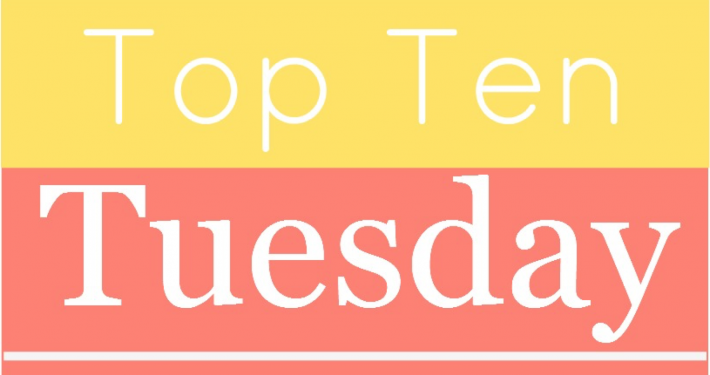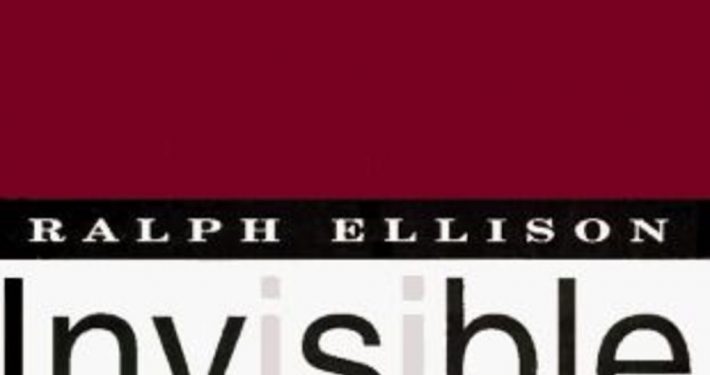ARC Review of Gilded Cage
/6 Comments/by Suzanne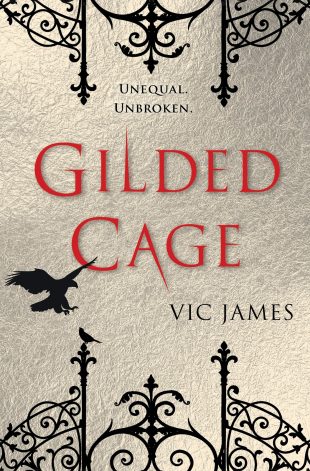 Gilded Cage (Dark Gifts, #1) by Vic James
Gilded Cage (Dark Gifts, #1) by Vic James 
Series: ,
Published by Del Rey Books on February 14th 2017
Genres: Fantasy, Young Adult Fiction
Pages: 368
Source: Netgalley
Amazon
Goodreads
FTC Disclosure: I received a complimentary copy of this book from the publisher via Netgalley. All opinions are my own.
Goodreads Synopsis:
Not all are free. Not all are equal. Not all will be saved.
Our world belongs to the Equals — aristocrats with magical gifts — and all commoners must serve them for ten years. But behind the gates of England’s grandest estate lies a power that could break the world.
A girl thirsts for love and knowledge.
Abi is a servant to England’s most powerful family, but her spirit is free. So when she falls for one of the noble-born sons, Abi faces a terrible choice. Uncovering the family’s secrets might win her liberty, but will her heart pay the price?
A boy dreams of revolution.
Abi’s brother, Luke, is enslaved in a brutal factory town. Far from his family and cruelly oppressed, he makes friends whose ideals could cost him everything. Now Luke has discovered there may be a power even greater than magic: revolution.
And an aristocrat will remake the world with his dark gifts.
He is a shadow in the glittering world of the Equals, with mysterious powers no one else understands. But will he liberate—or destroy?
My Review:
Vic James’ debut novel Gilded Cage is a novel that I’ve been looking forward to reading for months now. The premise – that a form of slavery is alive and well in England and that the ruling class uses magic to keep this unfair, dehumanizing system in place – intrigued me from the moment I first read the book’s synopsis and so I couldn’t wait to get my hands on it. Thanks so much to Netgalley, the publisher, and Vic James for providing me with an e-galley of Gilded Cage in exchange for my honest review.
So, what did I think of it? Well, honestly, my thoughts about Gilded Cage are a bit all over the place. There were definitely plenty of things I liked about the book, but that said, I also encountered a few problematic areas.
Let’s start with the good.
What I Liked:
Slavery vs. Rebellion: I was intrigued by the class-based society where magic-wielding “Equals” ruled over a non-magical citizen body and where each member of the non-magical citizenry is required to submit to a decade-long period of servitude called ‘Slavedays.’ While serving a Slavedays term, an individual basically relinquishes all of his or her legal rights as a citizen and becomes a slave to the Equals until your ten years are up. The concept of the Slavedays was quite fascinating because although the decade-long sentence of slave labor is mandatory, each citizen is able to choose when they serve their sentence. Some choose to serve fresh out of high school or college, while others choose to postpone it as long as they can. Families, if at all possible, are also allowed to serve their sentences together, and even if it’s not possible to keep all family members together, young children are required to be kept with a parent.
James’ readers get to see Slavedays up close and personal as we are introduced to some of the novel’s main characters, Luke and Abi Hadley, as they and their family members prepare to enter their Slavedays. Older sister Abi has deferred her acceptance to medical school to go ahead and serve her sentence and, as part of her deal, has managed to secure her family a pretty decent gig serving out their Slavedays at Kyneston, a magnificent estate owned by one of the most prominent Equal families in England, the Jardines. Compared to the alternative, a grungy, smog-filled industrial city called Millmoor, Kyneston sounds like a dream. Things don’t go according to plan on the day they are supposed to depart for Kyneston, however, when what appears to be a clerical error separates Luke from the rest of the family and he is sent by himself to Millmoor. We thus get to see both Millmoor and Kyneston as we follow both Luke and Abi on their very different journeys into Slavedays.
As expected, Millmoor is pretty much a nightmare filled with cruel supervisors, back-breaking labor, unhealthy food, and just an overall demoralizing atmosphere. What I liked about seeing the inside of Millmoor though was that the reader is immediately presented with covert signs of rebellion. I was so glad to see this because up until this point, I had been sitting here thinking “Why the heck are these citizens just voluntarily giving up ten years of their lives, selling off their homes and possessions, just because some uppity ruling class says that’s the way it is?” It was great to see that some folks weren’t just lying down and taking it without offering any kind of resistance. As Luke joins the resistance, we get to see more and more brazen acts of defiance and it’s pretty exciting to read and root for this band of underdogs that Luke has joined up with as they are clearly gearing up for a rebellion.
In contrast to the horrendous living and working conditions Luke and his fellow Millmoor inmates are subjected to, Abi and her family are given fairly nice housing to live in at Kyneston, ample food to eat, and their workloads are quite manageable as well as respectable, especially considering they are serving the same kind of sentence Luke is. Abi works as an administrative assistant to one of the Jardine brothers, her mother works as a nurse for an elderly family member, her father does maintenance work on vehicles on the property, and little sister Daisy is providing child care for Gavar Jardine’s daughter. Apparently all Slaveday terms are not created equally.
Politics: In addition to seeing that Slavedays is quite different depending on where you are assigned, we also get to see the flipside of things as we follow Abi and the rest of the family into the heart of Equal society and all of its political games. I’m a bit of a political junkie anyway so I found the goings on within the Equals’ ruling body to be quite fascinating. There are apparently a lot of ambitious and ruthless people within the Equals. There are power plays to be Chancellor, a small but vocal faction who supports the abolition of Slavedays altogether, and all sorts of other exciting things at play as Parliament is in session. If you’re into reading about politics and all of its behind-the-scenes machinations, there’s definitely a lot for you to enjoy in Gilded Cage.
Cloak and Dagger: I also really liked how James kept me guessing as to what side many of the characters in Gilded Cage were even on. It was never safe to assume any particular character was pro- or anti- slavery just based on their standing in society. There were several jaw-dropping surprises throughout the novel as it became clear that the rebels weren’t necessarily who I thought they were.
What Didn’t Work for Me:
Too Many Points of View: Where I’m somewhat conflicted about Gilded Cage has more to do with how the book is structured and the lack of explanation about certain key elements. First of all, there are so many points of view that without the book’s synopsis singling out three characters, I really had a hard time distinguishing who the main characters were supposed to be. You have the points of view of several members of each class – Abi and Luke, who are regular citizens beginning their period of servitude, and then you have several points of view from those who are considered Equals, such as Silyen and Gavar Jardine, who are brothers in one of the most prominent Equal families. While it was definitely interesting to see the class dynamic and the rebellion from both sides, it just made for a confusing time trying to keep track of everyone and it also made it hard to really connect with any of the characters.
Why Are Characters Doing What They’re Doing?
Characters’ motivations also weren’t clear to me. Aside from the general wrongness is the idea of mandatory servitude, why is Luke so quick to jump on board with the rebellion? Even though we’re in his head seeing what he’s doing from his point of view, there is still no real explanation for why he starts participating. It’s basically just one minute he isn’t, the next he is.
There were similar instances with the Jardine brothers as well. Silyen is, by far, the most fascinating character in the book and all of his schemes are so intriguing. He almost appears to be playing both sides against the other, but it’s not entirely clear why he’s doing what he’s doing. Is he truly an abolitionist even though he’s an Equal? Is he trying to create chaos and disruption so as to stage a power play and overstep his older brother to become his family’s heir? I’m hoping all of this will be become clear in the next book because I definitely found Silyen to be the most interesting character in Gilded Cage.
Abi’s Inappropriate Flirtation:
So those who regularly follow my reviews know I’m not big on romances randomly being inserted into a storyline where it’s unnecessary. To James’ credit, it does take a back seat to the rest of the action of the story but it’s still there so I have to comment – mainly because again, her motivations are unclear. Abi works very closely with one of the Jardine sons and becomes attracted to him. First of all, it’s not appropriate since it would basically be a master-slave relationship. Second, she is supposed to be working diligently to try to get her brother out of Millmoor and back with them, so why is she sitting around letting herself get distracted by a cute boy?
I’m all about strong female characters so in this sense, Abi was kind of a letdown if she really is supposed to be one of the main characters. She does do something risky and heroic at the end of the novel though so I’m hopeful this means she will step up and be the strong character I want her to be as the series continues.
The Verdict:
All in all, I found Gilded Cage to be an entertaining if somewhat confusing read. With a few of the kinks worked out regarding point of view and starting to explain why some of the characters are behaving as they are, it’s got the potential to be a great series.
Rating: 3 Stars

About Vic James

Vic lives in London’s Notting Hill, but her life is more action-adventure than rom-com.
She studied History and English at Merton College, Oxford where Tolkien was once professor. Relocating to Rome, she completed her doctorate in the Vatican Secret Archives (they’re nothing like The Da Vinci Code), then spent five years living in Tokyo where she learned Japanese and worked as a journalist. She now writes full time.
Vic has scuba-dived on Easter Island, camped at Everest Base Camp, voyaged on one of the last mailboats to St Helena, hang-glided across Rio de Janeiro, and swum the Hellespont from Europe to Asia. But there’s little she loves more than lying in bed till midday with a good book and a supply of her favourite biscuits.
Top Ten Tuesday – Top 10 YA Reads That Would Make Excellent Musicals
/28 Comments/by Suzanne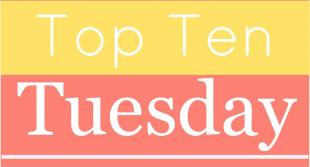
Top Ten Tuesday is a fun weekly meme hosted by The Broke and the Bookish. This week’s topic is “Top Ten Books I Wish Had (More/Less) X In Them (the original idea came from Andi who suggested top ten books I wish had more kissing which I thought could be fun but also realize it might not be everyone’s thing! Could also be top ten books I wish had more diversity in them or top ten books I wish had less violence in them or less romance focus in them or top ten books I wish had more dragons in them. IDK! Have some fun with this one!)”
I drew a serious blank on this topic no matter which way I tried to go. I gave up and sat down to watch the musical Grease for a while and then it hit me – what about great books that would be even more awesome if they were made into musicals? I decided to focus on YA novels since that’s what I’ve been mostly reading lately, so here’s my list of 10 YA reads that I think would make excellent musicals. I can practically envision the costumes and hear the music just thinking about these titles!
Top 10 YA Reads That Would Make Excellent Musicals
* * * * *
1. A DARKER SHADE OF MAGIC by V.E. Schwab

* * * * *
2. A COURT OF THORNS AND ROSES by Sarah J. Maas

* * * * *
3. CINDER by Marissa Meyer
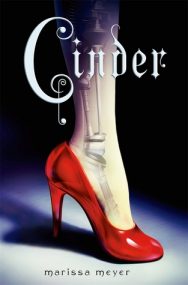
* * * * *
4. FROSTBLOOD by J.K. by Elly Blake
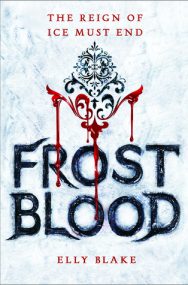
* * * * *
5. EVER THE HUNTED by Erin Summerill
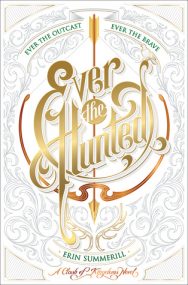
* * * * *
6. SIMON VS. THE HOMO SAPIENS AGENDA by Becky Albertalli

* * * * *
7. FANGIRL by Rainbow Rowell

* * * * *
8. RED QUEEN by Victoria Aveyard
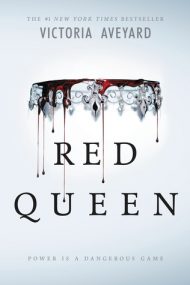
* * * * *
9. ANNA & THE FRENCH KISS by Stephanie Perkins
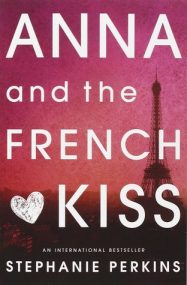
* * * * *
10. ELEANOR AND PARK by Rainbow Rowell
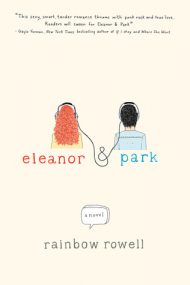 * * * * *
* * * * *
Question: What YA reads do you think would make excellent musicals?
Re-ReadIt Challenge: Review of Invisible Man by Ralph Ellison
/8 Comments/by Suzanne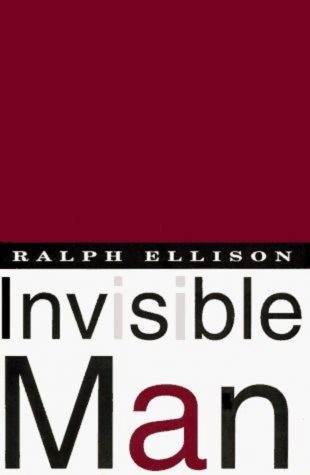 Invisible Man by Ralph Ellison
Invisible Man by Ralph Ellison 
Published by Vintage on February 1st 1995
Genres: Fiction
Pages: 581
Amazon
Goodreads
Goodreads Synopsis:
First published in 1952 and immediately hailed as a masterpiece, Invisible Man is one of those rare novels that have changed the shape of American literature. For not only does Ralph Ellison’s nightmare journey across the racial divide tell unparalleled truths about the nature of bigotry and its effects on the minds of both victims and perpetrators, it gives us an entirely new model of what a novel can be.
As he journeys from the Deep South to the streets and basements of Harlem, from a horrifying “battle royal” where black men are reduced to fighting animals, to a Communist rally where they are elevated to the status of trophies, Ralph Ellison’s nameless protagonist ushers readers into a parallel universe that throws our own into harsh and even hilarious relief. Suspenseful and sardonic, narrated in a voice that takes in the symphonic range of the American language, black and white, Invisible Man is one of the most audacious and dazzling novels of our century.
My Review:
I chose to re-read Ralph Ellison’s Invisible Man as my January entry for the ReReadIt Challenge hosted by Ashley at Inside My Minds. I wanted to re-read this literary classic because I originally read it when I was a teenager and I don’t think I fully appreciated it on that first reading and so wanted to give it a second look. I was also curious to see how relevant its themes still are today. I’m glad I did choose to revisit Invisible Man because it truly stands the test of time as a literary classic and I actually believe its themes are more relevant than ever.
At its heart, Invisible Man is a powerful coming of age story. An anonymous black man tells the story of his journey to adulthood as he tries to discover who he is and what his place is in an American society that makes no attempt to even hide its racist tendencies. What kind of identity and sense of self-worth can he have in a society that refuses to see him and acknowledge that he does in fact, have any worth at all?
What I think makes Invisible Man such a powerful read is that the story is told in first person by the Invisible Man himself. Seeing firsthand what he sees and experiences as he tries to make his own way in a society that is often hostile, at best confusing, and quite often filled with betrayal, really drives home the message of how dehumanizing life can be if those around you refuse to acknowledge that you are a human being and that you matter just as much as they do.
One vivid example that sticks out in my mind is when our unnamed narrator is a senior in high school and is chosen to give an important speech. Word gets out into the community about his oratory skills and about what a stellar student he is, and so he is invited to give his speech in front of an important group of white men in the community. When he arrives, he is blindfolded and thrust into a ring with many other similarly blindfolded men where they are forced to fight each other like animals until the last one is standing. This is of course pure sport for those white men who have organized this “entertainment” for themselves and completely humiliating and degrading for our young narrator. It is especially heartbreaking seeing it from his perspective because he naively has no idea what they have in store for him, has come to the event all dressed up, and is diligently practicing his speech in his head right up until the moment he’s blindfolded and tossed into the fighting ring. Afterwards, the white men excuse away their behavior by then allowing the narrator give his speech and then awarding him with a scholarship to an all black college. What a painful and confusing message to give a young man! “Here, we recognize that you are one of the best and brightest, but we we’re still going to go out of our way to put you in your place.”
We follow the narrator from his hometown and his university in the Deep South until he gets expelled from university. His crime? He was tasked with driving one of the school’s white trustees around while they were visiting the campus. One of the places the trustee asked to visit turned out to be an unsavory part of town that sits right on the outskirts of the university. According to the headmaster, our narrator irreparably damaged the school’s reputation and therefore had to leave. The headmaster decides not to be completely heartless though and sends the narrator up north to Harlem, armed with a handful of sealed recommendation letters, to secure a job with someone connected to the university. The narrator arrives in Harlem and starts dutifully dropping off the recommendation letters, determined to find a job as soon as possible because he is hoping to make the most of this opportunity for a fresh start since he can’t return to school. The narrator’s bubble is quickly burst, however, when it is ultimately revealed to him that the letters he is handing out are not, in fact, recommendation letters at all, but instead, they are letters condemning him so as to sabotage his job searching efforts.
The rest of the novel tracks him as he continues to try to make his way in the world. Every step of the way he encounters either hatred and bigotry or else people like the self-serving “Brotherhood” who recognize his oratory gift and want to use him to make speeches that advance their own causes. They promise they’re going to turn him into the next Frederick Douglass or W.E.B. DuBois, but then proceed to change the rules at every turn and use him as a scapegoat each time things don’t go according to plan. Each experience only serves to strip away a little more of his innocence and his self-worth until he ultimately flees and turns to life underground, off the grid, which is where we find him when the story begins.
Invisible Man is not an easy read, by any stretch. I won’t even classify it as entertaining because there’s nothing entertaining about racism and bigotry. I will classify this as an incredibly important read though because it gives a voice to those in society who have no voice. This is echoed in the final lines of the novel: “Who knows but that, on the lower frequencies, I speak to you?” The idea of giving voice to those who have no voice is just as relevant today as it was when Ellison wrote the book, especially when considered in light of the immigrant ban in the U.S. It seems like more groups than ever are being made to feel invisible.
Note: If you do read Invisible Man, I highly recommend reading it with the audible narration by Joe Morton from TV’s Scandal. I listened to this narration while I read and thought it really added a lot to the overall story. Morton delivers a powerful reading that really highlights the nuances that might otherwise be missed – the initial innocence followed by increasing sarcasm and biting humor that develops as the narrator becomes further disillusioned with life.
Rating: 4 stars

About Ralph Ellison
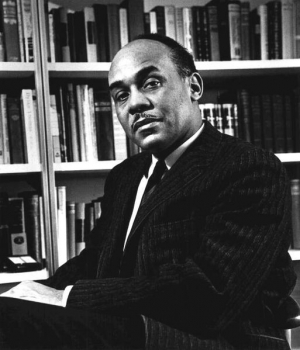
Ralph Ellison was a scholar and writer. He was born Ralph Waldo Ellison in Oklahoma City, Oklahoma, named by his father after Ralph Waldo Emerson. Ellison was best known for his novel Invisible Man, which won the National Book Award in 1953. He also wrote Shadow and Act (1964), a collection of political, social and critical essays, and Going to the Territory (1986). For The New York Times , the best of these essays in addition to the novel put him “among the gods of America’s literary Parnassus.” A posthumous novel, Juneteenth, was published after being assembled from voluminous notes he left after his death.
Ellison died of Pancreatic Cancer on April 16, 1994. He was eighty-one years old.




